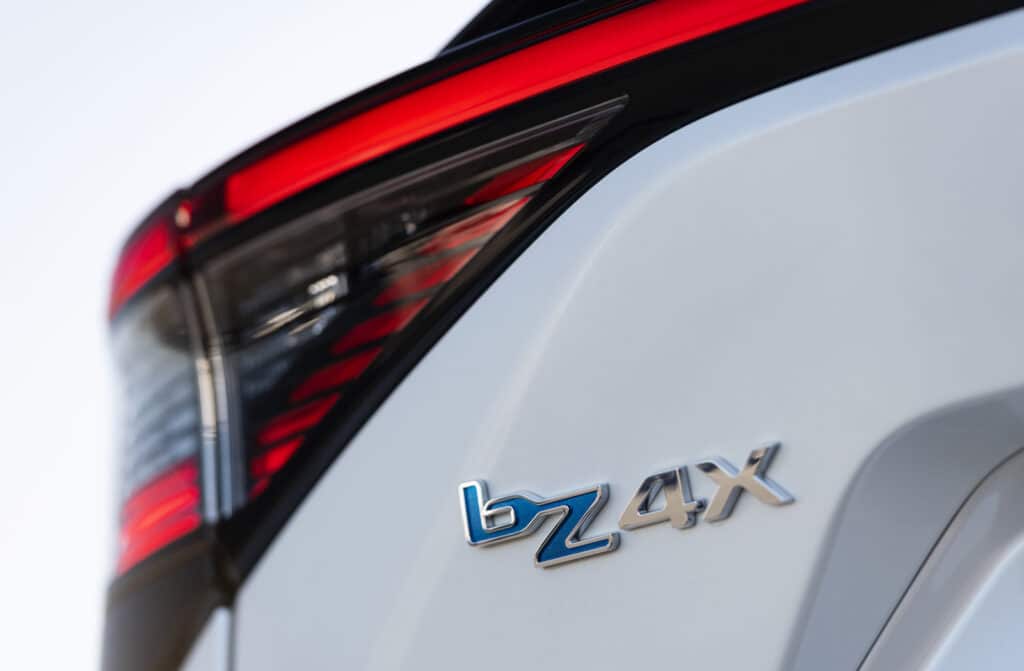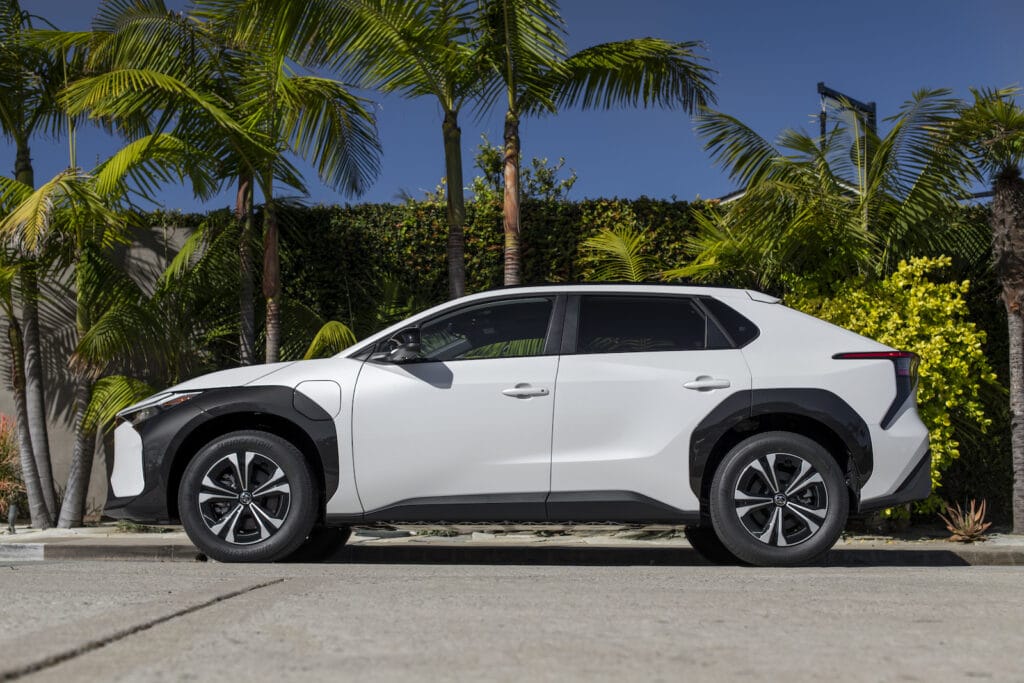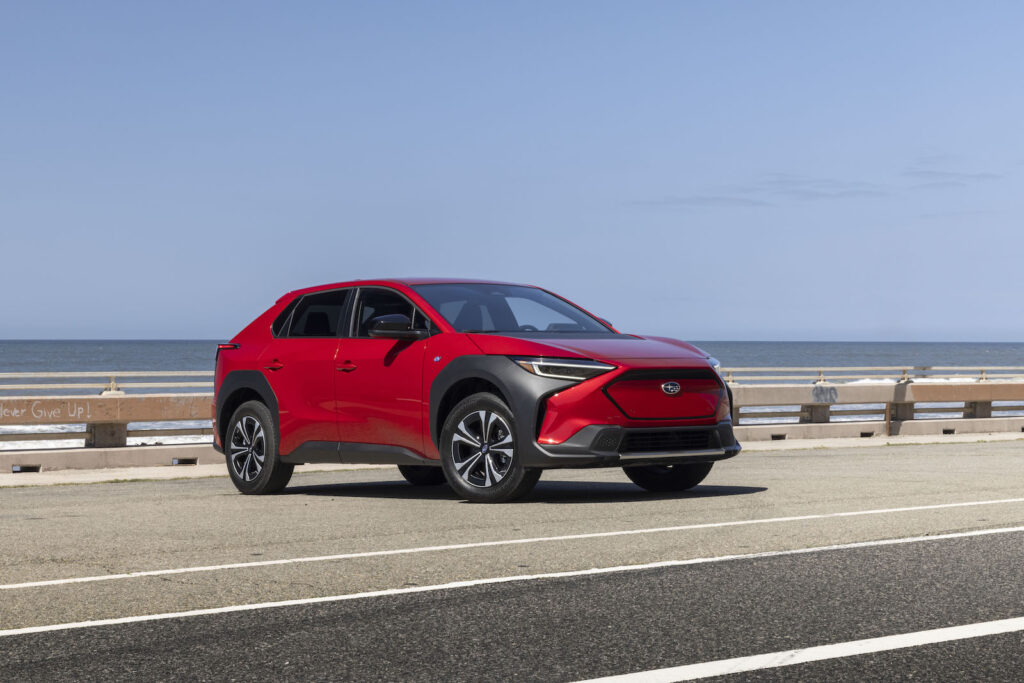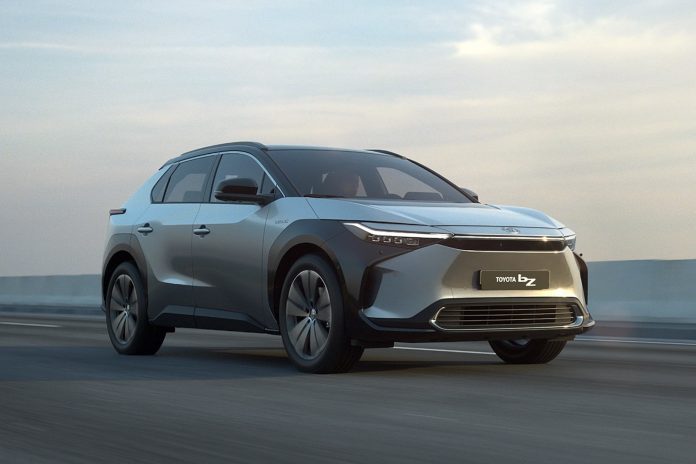The all-new 2023 Toyota bZ4X EV barely made it off the lot before encountering a catastrophic failure.

With just 260 cars delivered to owners, Toyota issued a recall and a Do Not Drive notice on the new vehicle. The recall also applies to the closely related 2023 Subaru Solterra EV, though Subaru has not yet delivered any of those vehicles to customers.
The problem leading to the recall is that in just a few miles of driving, all of the hub bolts can loosen to the point where the wheels can detach from the vehicle, potentially causing a collision or rollover.
Toyota is still investigating the root cause of the problem and the driving patterns under which this issue occurs, and it does not yet have a repair available.
The company says until the remedy is available, any authorized Toyota dealer will pick up the bZ4X, store it, and provide a loaner vehicle to the owner. This week, the company sent a letter to all bZ4X owners offering a variety of credits and services.
The next step
Toyota’s offer is the second step in the process, after first revealing the problem in late June for all 2,700 vehicles.

The company revealed in a report to the Japanese transportation ministry the vehicles, which said sharp turns and harsh braking may cause a hub bolt to loosen. This increases the possibility of the wheel coming off the vehicle.
“We sincerely apologise for any inconvenience this causes you,” Toyota said on its website at the time. “We would have repaired it as soon as possible, but we are investigating the details.”
Owner guidance
The letter offers continued access to a loaner vehicle, and storage for the bZ4X at no cost, and to reimburse fuel costs for the loaner. Also, Toyota will provide owners with a $5,000 credit toward payments of any loan/lease or against the vehicle purchase price if the customer paid cash.
Additionally, Toyota offers no-cost charging at all EVgo-owned and operated public stations nationwide through Dec. 31, 2024, and an extension to the bZ4X warranty for the period of time the car is out of service.
Notably, the letter goes on to state that if all that isn’t enough, Toyota will buy back the bZ4X, although the letter states that the terms of the buyback would vary based on each buyer’s situation.

EV production is hard
While Toyota and Subaru officials are likely displeased with having to issue a recall so early in the lives of their new EVs, the companies are far from alone with new EVs facing issues.
Ford announced a recall and stop/sale of 49,000 Mustang Mach-E electric vehicles that could lose power due to a part overheating when the vehicle is subjected to several “wide-open pedal events.”
The loss of power means no propulsion which could cause a crash. This is the fifth recall on the company’s top-selling electric vehicle, and accounts for nearly half of the Mach-E EVs built.
Ford recalled nearly 40,000 Mach-Es last fall due to improperly bonded windshields and panoramic glass roofs that could come loose while driving. Ford was first made aware of the problem when it received reports of a cracked windshield and problems with the urethane used to seal the glass in place.
It has faced additional problems including a software glitch that led to “bricking” by some early models. Some vehicles had their 12-volt batteries drain while charging the SUV’s high-voltage lithium-ion pack. As a result, they would enter a “deep sleep” mode.

